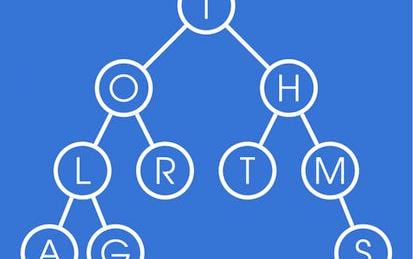

Our Courses

User Research and Design
In this course you will learn and practice techniques of user research and early UI design exploration. First, you will learn and practice several techniques for user research, including in-person research and survey and log-analysis techniques. Then, you will learn to analyze and deliver user research in forms that support UI design, including personas, use cases, tasks, and scenarios. Finally, you will learn and practice ideation techniques that start from user research and broadly generate potential design ideas.
-
Course by

-
 Self Paced
Self Paced
-
 8 hours
8 hours
-
 English
English

Business Metrics for Data-Driven Companies
In this course, you will learn best practices for how to use data analytics to make any company more competitive and more profitable. You will be able to recognize the most critical business metrics and distinguish them from mere data. You’ll get a clear picture of the vital but different roles business analysts, business data analysts, and data scientists each play in various types of companies.
-
Course by

-
 Self Paced
Self Paced
-
 8 hours
8 hours
-
 English
English
Global Impact: Business Ethics
Global business ethics is the study and analysis of how ethics and global business are connected. Because commerce is about markets, and markets entail exchanges between people and groups of people, commerce is about human relationships.. One of the important challenges in global business is working out the extent of these obligations in the interrelationships between businesses and the particular local cultures in which that business operates.
-
Course by

-
 Self Paced
Self Paced
-
 10 hours
10 hours
-
 English
English

Tricky American English Pronunciation
In this course, you’ll practice the sounds of American English that might sometimes be confusing. You'll practice both consonant and vowel sounds. You’ll also learn about the things that give English its special “music,” such as how to stress the right syllable in a word, how to make your voice go up and down in a natural-sounding melody, and how to naturally connect sounds and words.
-
Course by

-
 Self Paced
Self Paced
-
 21 hours
21 hours
-
 English
English

Meeting Investors' Goals
In this course, you will dive into the concepts of rationality and irrationality and understand how they impact our investment decisions and what the consequences can be at the market level. You will first explore the different biases that we, as humans, are subjected to when facing investment decisions and how they may impact the outcomes of these decisions. Moreover, you will see how emotions and ethical concerns such as honesty and trust influence market participants.
-
Course by

-
 Self Paced
Self Paced
-
 9 hours
9 hours
-
 English
English

Camera Control
Welcome to Course Two of Photography Basics and Beyond: From Smartphone to DSLR! Now that you have a broad understanding of the various types of cameras, the importance of setting up Menus and Functions to gain control in your photography, and the difference between Auto and Program exposure modes, you are ready to move into even greater Camera Control!
-
Course by

-
 Self Paced
Self Paced
-
 13 hours
13 hours
-
 English
English
Marketing in a Digital World
This course examines how new digital tools, such as the Internet, smartphones, and 3D printing, are revolutionizing the world of marketing by changing the roles and practices of both firms and consumers.
-
Course by

-
 Self Paced
Self Paced
-
 29 hours
29 hours
-
 English
English
Entrepreneurship I: Laying the Foundation
This course will explore the earlier stages of the entrepreneurial venture process across four modules. The modules will examine the nature of growth and error in entrepreneurial settings and how to manage resources in those settings. In addition, the modules will explore the emergence of entrepreneurial opportunities, the formulation of ideas in relation to those opportunities, and how those opportunities and ideas influence entrepreneurial phenomena.
-
Course by

-
 Self Paced
Self Paced
-
 18 hours
18 hours
-
 English
English

Conjunctions, Connectives, and Adverb Clauses
This is the second course in the Learn English: Advanced Grammar and Punctuation specialty. In this course, you will learn about a lot of different ways to join ideas to make more complex and interesting sentences. You'll learn about two types of conjunctions, many other types of connectives, and adverb clauses. You'll also learn about how to punctuate all of these expressions and the types of sentences they create.
-
Course by

-
 Self Paced
Self Paced
-
 22 hours
22 hours
-
 English
English

Fundamentals of Graphic Design
Graphic Design is all around us! Words and pictures—the building blocks of graphic design—are the elements that carry the majority of the content in both the digital world and the printed world. As graphic design becomes more visible and prevalent in our lives, graphic design as a practice becomes more important in our culture. Through visual examples, this course will teach you the fundamental principles of graphic design: imagemaking, typography, composition, working with color and shape... foundational skills that are common in all areas of graphic design practice.
-
Course by

-
 Self Paced
Self Paced
-
 15 hours
15 hours
-
 English
English
Corporate Finance II: Financing Investments and Managing Risk
In this course you will learn how companies decide on how much debt to take, and whether to raise capital from markets or from banks. You will also learn how to measure and manage credit risk and how to deal with financial distress. You will discuss the mechanics of dividends and share repurchases, and how to choose the best way to return cash to investors. You will also learn how to use derivatives and liquidity management to offset specific sources of financial risk, including currency risks.
-
Course by

-
 Self Paced
Self Paced
-
 19 hours
19 hours
-
 English
English

Cyber Threats and Attack Vectors
Data breaches occur nearly every day. From very large retailers, down to your fantasy football website, and anywhere in between, they have been compromised in some way. How did the attackers get in? What did they do with the data they compromised? What should I be concerned with in my own business or my systems? This course is the second course in the Practical Computer Security. It will discuss types of threats and attack vectors commonly seen in today’s environment. I hate to be the bearer of bad news, but threats are all over the place!
-
Course by

-
 Self Paced
Self Paced
-
 12 hours
12 hours
-
 English
English

Number Theory and Cryptography
A prominent expert in the number theory Godfrey Hardy described it in the beginning of 20th century as one of the most obviously useless branches of Pure Mathematics”. Just 30 years after his death, an algorithm for encryption of secret messages was developed using achievements of number theory. It was called RSA after the names of its authors, and its implementation is probably the most frequently used computer program in the world nowadays. Without it, nobody would be able to make secure payments over the internet, or even log in securely to e-mail and other personal services.
-
Course by

-
 Self Paced
Self Paced
-
 17 hours
17 hours
-
 English
English

Digital Transformation
Designed for leaders focused on implementing new ideas, staying ahead of the competition and aligning their people, data and technology to drive digital transformation. First, we discuss the pace of change, and its impact, implications and opportunities. Traditional businesses need to rethink their underlying assumptions to create new game plans and capture new opportunities in the digital world.
-
Course by

-
 Self Paced
Self Paced
-
 14 hours
14 hours
-
 English
English

Data Structures
A good algorithm usually comes together with a set of good data structures that allow the algorithm to manipulate the data efficiently. In this online course, we consider the common data structures that are used in various computational problems. You will learn how these data structures are implemented in different programming languages and will practice implementing them in our programming assignments. This will help you to understand what is going on inside a particular built-in implementation of a data structure and what to expect from it.
-
Course by

-
 Self Paced
Self Paced
-
 25 hours
25 hours
-
 English
English

Google SEO Capstone Project
SEO is a dynamic and growing career field that demands knowledge and skills in a variety of website optimization strategies and tactics in order to be successful. This course is designed to provide you with a solid foundation in SEO including the different elements comprising a website optimization client report, and arm you with skills you need to develop a tactical approach to SEO.
-
Course by

-
 Self Paced
Self Paced
-
 47 hours
47 hours
-
 English
English

Fundamentals of Visualization with Tableau
In this first course of this specialization, you will discover what data visualization is, and how we can use it to better see and understand data. Using Tableau, we’ll examine the fundamental concepts of data visualization and explore the Tableau interface, identifying and applying the various tools Tableau has to offer. By the end of the course you will be able to prepare and import data into Tableau and explain the relationship between data analytics and data visualization.
-
Course by

-
 Self Paced
Self Paced
-
 11 hours
11 hours
-
 English
English

Cloud Computing Concepts: Part 2
Cloud computing systems today, whether open-source or used inside companies, are built using a common set of core techniques, algorithms, and design philosophies – all centered around distributed systems. Learn about such fundamental distributed computing "concepts" for cloud computing. Some of these concepts include: clouds, MapReduce, key-value/NoSQL stores, classical distributed algorithms, widely-used distributed algorithms, scalability, trending areas, and much, much more! Know how these systems work from the inside out.
-
Course by

-
 Self Paced
Self Paced
-
 20 hours
20 hours
-
 English
English

Applied Machine Learning in Python
This course will introduce the learner to applied machine learning, focusing more on the techniques and methods than on the statistics behind these methods. The course will start with a discussion of how machine learning is different than descriptive statistics, and introduce the scikit learn toolkit through a tutorial. The issue of dimensionality of data will be discussed, and the task of clustering data, as well as evaluating those clusters, will be tackled.
-
Course by

-
 31 hours
31 hours
-
 English
English

Fundamentals of GIS
Explore the world of spatial analysis and cartography with geographic information systems (GIS). In this class you will learn the basics of the industry’s leading software tool, ArcGIS, during four week-long modules: Week 1: Learn how GIS grew from paper maps to the globally integrated electronic software packages of today. You will install ArcGIS on your computer and learn how to use online help to answer technical questions. Week 2: Open up ArcGIS and explore data using ArcMap.
-
Course by

-
 Self Paced
Self Paced
-
 56 hours
56 hours
-
 English
English

Understanding Financial Markets
In this course, you will learn what the main financial markets and their characteristics are as well as how they are linked to the economy. Our very diversified team of experts will start by teaching you how the price of stocks and bonds are computed and why they move while you will become increasingly aware of the notion of risk and why it matters when measuring an investment's performance. The focus will then move to less popular markets such as gold, emerging markets, real estate, hedge funds and private markets.
-
Course by

-
 Self Paced
Self Paced
-
 11 hours
11 hours
-
 English
English

Cost and Economics in Pricing Strategy
How much should you charge for your products and services? Traditionally, businesses have answered this question based on the cost to produce or provide their goods and services. This course shows you the economic factors behind pricing based on cost and the pros and cons of a cost-based pricing approach. Developed at the Darden School of Business at the University of Virginia, and led by top-ranked Darden faculty and Boston Consulting Group global pricing experts, the course provides the practical and research-based models and methods you need to set prices that maximize your profits.
-
Course by

-
 Self Paced
Self Paced
-
 12 hours
12 hours
-
 English
English

Trading Basics
The purpose of this course is to equip you with the knowledge required to comprehend the financial statements of a company and understand the various transactions that take place in the stock market so that you can replicate the strategies discovered by the extant academic literature. The first part of the course provides a brief introduction to financial statements and various common filings of firms. You will learn how to obtain information regarding a company's performance from them and use the information to build trading strategies.
-
Course by

-
 Self Paced
Self Paced
-
 8 hours
8 hours
-
 English
English

Business English for Cross-cultural Communication
This course aims to prepare you for working in an cross-cultural Business setting. We'll learn about common cross-cultural theories and how they are relevant to everyday business practices in a globalised world. By combining all of your vocabulary, reading, speaking, and writing skills that you acquired in the previous three courses, you will learn how language plays an important role in cross-cultural communication.
-
Course by

-
 Self Paced
Self Paced
-
 22 hours
22 hours
-
 English
English

Introduction to Typography
Typography is the art of manipulating the visual form of language to enrich and control its meaning. It’s an essential area of skill and knowledge for graphic designers. Typography predates modern graphic design by around 500 years; it is rich in rules, conventions, and esoteric terminology—but it remains an exciting space for invention and expression. In this rigorous introductory course, we will study, name, and measure the characteristics of letterforms. We’ll consider the pragmatic concerns involved in selecting and combining type.
-
Course by

-
 Self Paced
Self Paced
-
 9 hours
9 hours
-
 English
English



